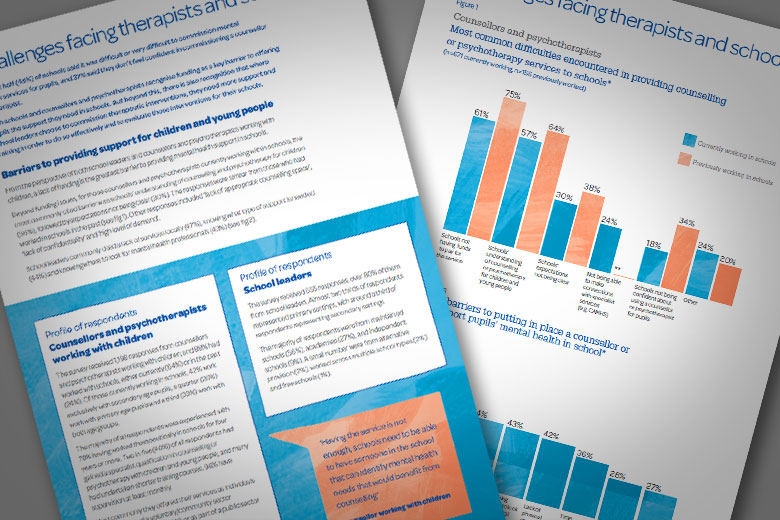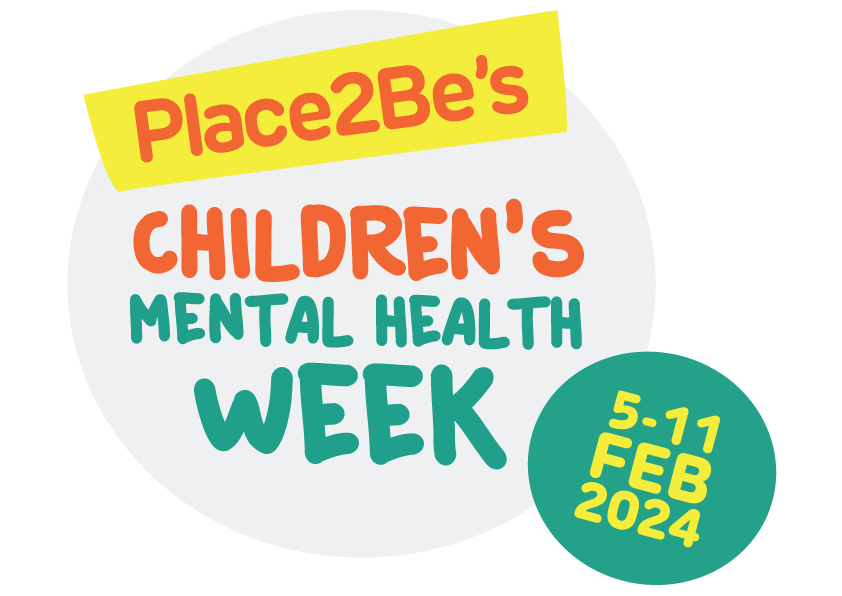
Schools struggle to know what type of mental health support is needed for pupils
This Children’s Mental Health Week Place2Be has partnered with NAHT, BACP and UKCP, to conduct new research into mental health support in schools
Almost half (45%) of school leaders have found it difficult to commission mental health support for their pupils, and over a third (34%) of counsellors and psychotherapists who work with children and young people said it was difficult to provide their services to schools.
A new report from Place2Be in partnership with BACP, NAHT and UKCP*, provides a picture of the challenges faced by schools and school-based mental health professionals.
The research also found that 44% of school leaders said “knowing what type of support is needed” is a barrier to providing mental health support for pupils, and 37% said they don’t feel confident in commissioning a counsellor or therapist.
Similarly, the counsellors and psychotherapists currently working in schools said that common difficulties faced were schools’ understanding of counselling and psychotherapy for children” (57%), followed by “expectations not being clear” (30%). For both schools and therapists, a lack of funding remains the most common barrier to providing support.
The Department for Education’s Blueprint for Counselling in Schools provides guidance for schools about setting up and improving counselling services for pupils. School leaders can also visit the BACP and UKCP websites to find lists of accredited counsellors and psychotherapists.
Catherine Roche, Chief Executive of Place2Be said: “School leaders are already under immense pressure to deliver academic progress – and we shouldn’t expect them to become mental health experts as well. Our evidence and experience shows that embedding skilled mental health professionals in schools, as part of a whole school approach, can have an enormously positive impact for pupils, families and staff. It’s encouraging that the Government’s green paper proposals have recognised this, but to really transform children’s mental health provision, we need all schools to have access to dedicated funding, support and training to be able to source, commission and evaluate services effectively.”
Paul Whiteman, general secretary of school leaders’ union, NAHT, said: “Schools have always been on the front line with children's mental health because school is often where issues first become apparent. This is why a significant number of schools choose to commission counsellors and psychotherapists themselves. However, school leaders are not experts in therapeutic interventions so it can be difficult to know what kind of support is needed. NAHT has continually argued for a more rounded approach, to take some of the emphasis away from schools and re-assert the importance of well-resourced and accessible local support services.”
Dr Andrew Reeves, chair of British Association for Counselling and Psychotherapy (BACP) said: “It is clear from these results that although school leaders can see the benefits of school-based counselling as an early intervention in reducing psychological distress; many feel that they need more guidance in recruiting the right mental health support in their schools. The benefits of school counselling are well established, but we must enable school leaders with the information and funding to be able to recruit counsellors and be confident that they have the right training, skills and knowledge to work with children and young people. BACP has a competence framework for working with 11-18s, with one for 4-10s in development, and these are one way of demonstrating a counsellor’s ability.”
Prof Sarah Niblock, Chief Executive of the UK Council for Psychotherapy, said: “Urgent steps must be taken to bridge this gap given that 50 per cent of mental health problems in adults are established by 14 and 75 per cent by 24. We need a senior professional therapist in every school, able to carry out individual assessments of clinical need, and to develop and oversee an organisation-wide culture capable of supporting children’s and adults’, including teachers and parents’ emotional and mental health – individually, in groups, families, classes and whole-school.”
*BACP is a professional body representing counselling and psychotherapy with over 44,000 members and works toward a better standard of therapeutic practice.
NAHT is an independent trade union and professional association representing over 29,000 School Leaders in England, Wales and Northern Ireland.
UKCP UK Council for Psychotherapy is a professional body for research, education, training, accreditation and regulation of psychotherapists and psychotherapeutic counsellors.
